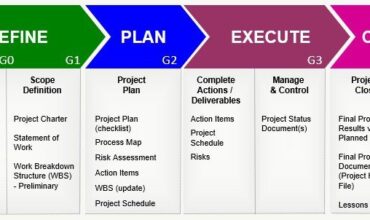What is a Project manager?
A project manager is the person responsible for accomplishing the project objectives. Key project management responsibilities include
defining and communicating project objectives that are clear, useful and attainable
procuring the project requirements like workforce, required information, various agreements and material or technology needed to accomplish project objectives
managing the constraints of the project management triangle, which are cost, time, scope and quality
A project manager is a client representative and has to determine and implement the exact needs of the client, based on knowledge of the organization they are representing. An expertise is required in the domain the Project Managers are working to efficiently handle all the aspects of the project. The ability to adapt to the various internal procedures of the client and to form close links with the nominated representatives, is essential in ensuring that the key issues of cost, time, quality and above all, client satisfaction, can be realized.
IT Project Manager
IT Project Management generally falls into two categories, namely Software (Development) Project Manager and Infrastructure Project Manager.
Software Project Manager
A Software Project Manager has many of the same skills as their counterparts in other industries. Beyond the skills normally associated with traditional project management in industries such as construction and manufacturing, a software project manager will typically have an extensive background in software development. Many software project managers hold a degree in Computer Science, Information Technology, Management of Information Systems or another related field.
In traditional project management a heavyweight, predictive methodology such as the waterfall model is often employed, but software project managers must also be skilled in more lightweight, adaptive methodologies such as DSDM, Scrum and XP. These project management methodologies are based on the uncertainty of developing a new software system and advocate smaller, incremental development cycles. These incremental or iterative cycles are time boxed (constrained to a known period of time, typically from one to four weeks) and produce a working subset of the entire system deliverable at the end of each iteration. The increasing adoption of lightweight approaches is due largely to the fact that software requirements are very susceptible to change, and it is extremely difficult to illuminate all the potential requirements in a single project phase before the software development commences.
The software project manager is also expected to be familiar with the Software Development Life Cycle (SDLC). This may require in depth knowledge of requirements solicitation, application development, logical and physical database design and networking. This knowledge is typically the result of the aforementioned education and experience. There is not a widely accepted certification for software project managers, but many will hold the Project Management Professional (PMP) designation offered by the Project Management Institute, PRINCE2 or an advanced degree in project management, such as a MSPM or other graduate degree in technology management.
IT Infrastructure Project Management
An infrastructure IT PM is concerned with the nuts and bolts of the IT department, including computers, servers, storage, networking, and such aspects of them as backup, business continuity, upgrades, replacement, and growth. Often, a secondary data center will be constructed in a remote location to help protect the business from outages caused by natural disaster or weather. Recently, cyber security has become a significant growth area within IT infrastructure management.
The infrastructure PM usually has an undergraduate degree in engineering or computer science, with a master’s degree in project management required for senior level positions. Along with the formal education, most senior level PMs are certified, by the Project Management Institute, as a Project Management Professional. PMI also has several additional certification options, but PMP is by far the most popular.
Infrastructure PMs are responsible for managing projects that have budgets from a few thousand dollars up to many millions of dollars. They must understand the business and the business goals of the sponsor and the capabilities of the technology in order to reach the desired goals of the project. The most difficult part of the infrastructure PM’s job may be this translation of business needs / wants into technical specifications. Oftentimes, business analysts are engaged to help with this requirement. The team size of a large infrastructure project may run into several hundred engineers and technicians, many of whom have strong personalities and require strong leadership if the project goals are to be met.
Due to the high operations expense of maintaining a large staff of highly skilled IT engineering talent, many organizations outsource their infrastructure implementations and upgrades to third party companies. Many of these companies have strong project management organizations with the ability to not only manage their clients projects, but to also generate high quality revenue at the same time.
Responsibilities
The Project Manager is accountable for ensuring that everyone on the team knows and executes his or her role, feels empowered and supported in the role, knows the roles of the other team members and acts upon the belief that those roles will be performed.[3] The specific responsibilities of the Project Manager may vary depending on the industry, the company size, the company maturity, and the company culture. However, there are some responsibilities that are common to all Project Managers, noting:[4]
- Developing the project plans
- Managing the project stakeholders
- Managing communication
- Managing the project team
- Managing the project risks
- Managing the project schedule
- Managing the project budget
- Managing the project conflicts
- Managing the project delivery



